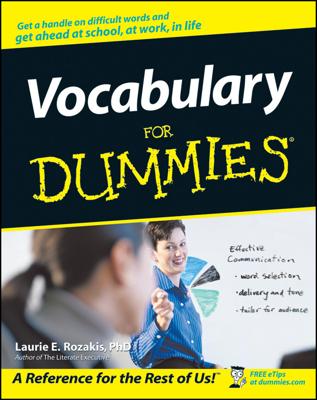English supplies pronouns for ownership. Some possessive pronouns are my, your, his, her, its, our, and their. Here’s a rule so important — and so often broken — that you should consider tattooing it on your pinky finger: No possessive pronoun ever has an apostrophe. A few examples of possessive pronouns in action:
your completely unruly child — not your’ completely unruly child (also wrong: that completely unruly child of yours’)
our extremely well-behaved youngster — not our’ extremely well-behaved youngster (also wrong: the extremely well-behaved youngster of ours’)
their tendency to fight — not their’ tendency to fight (also wrong: the tendency of theirs’ not to fight)
his call to the police — not his’ call to the police
Which sentence is correct?
A. Roy stole Jenny’s mouthwash because of their’ ancient feud.
B. Roy stole Jenny’s mouthwash because of their ancient feud.
C. Roy stole Jennys mouthwash because of their ancient feud.
Answer: Sentence B is correct. In sentence A, the apostrophe is needed in Jenny’s because Jenny owns the mouthwash. However, their should not have an apostrophe because no possessive pronoun ever has an apostrophe. In sentence C, their is written correctly, but Jennys lacks the apostrophe.
Just one more. Which sentence is correct?
A. Eggworthy claims that a weeks mouthwash is not worth fighting over and has pledged his support to Roy.
B. Eggworthy claims that a week’s mouthwash is not worth fighting over and has pledged his’ support to Roy.
C. Eggworthy claims that a week’s mouthwash is not worth fighting over and has pledged his support to Roy.
Answer: Sentence C is correct. In sentence A, a weeks needs an apostrophe because the phrase means a week of. In sentence B, his’ shouldn’t have an apostrophe because (say it aloud) no possessive pronoun ever has an apostrophe.

